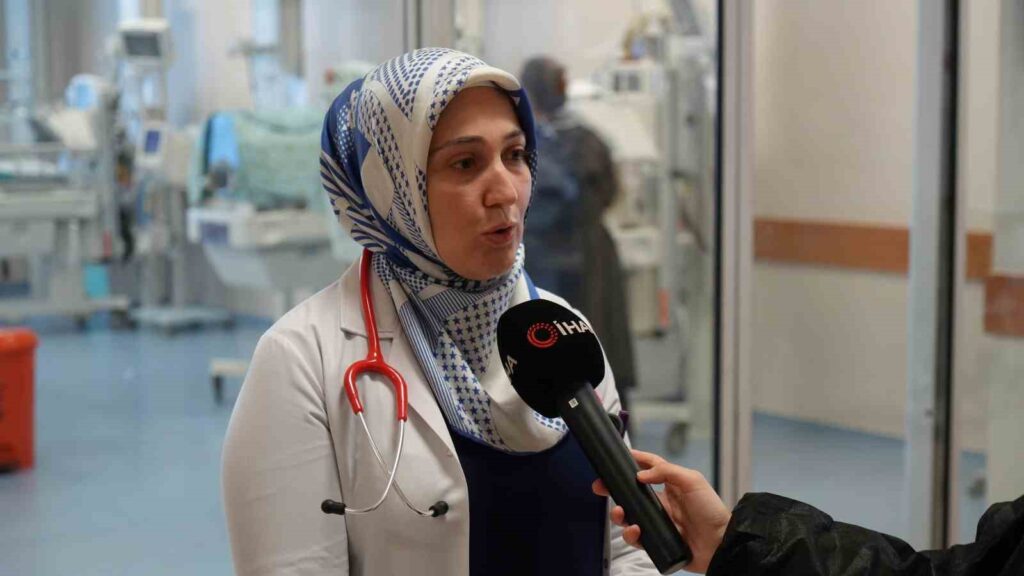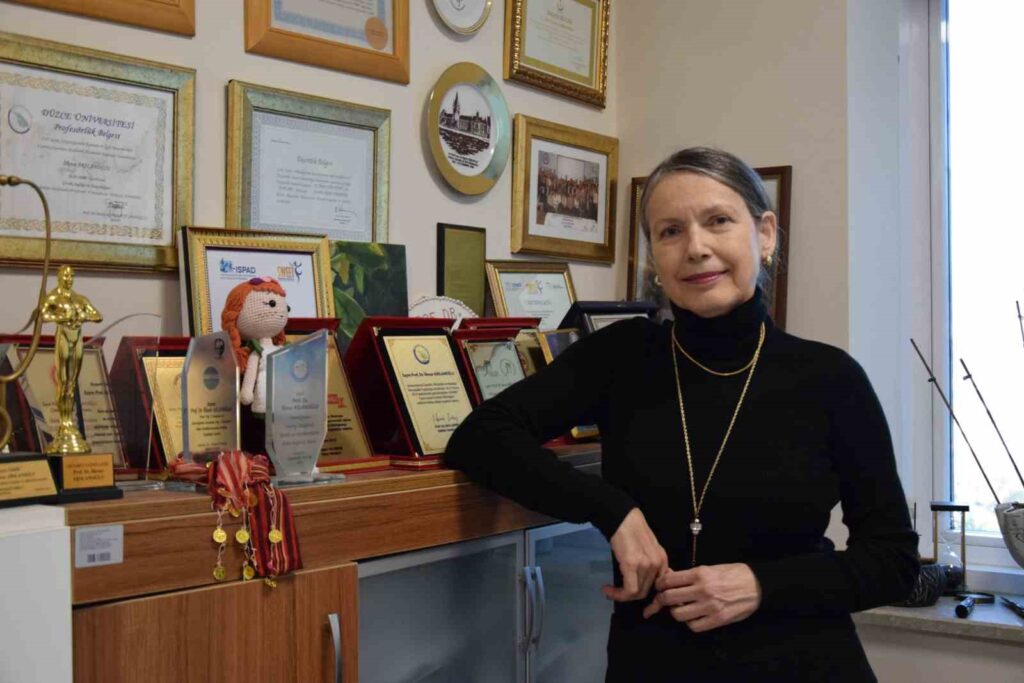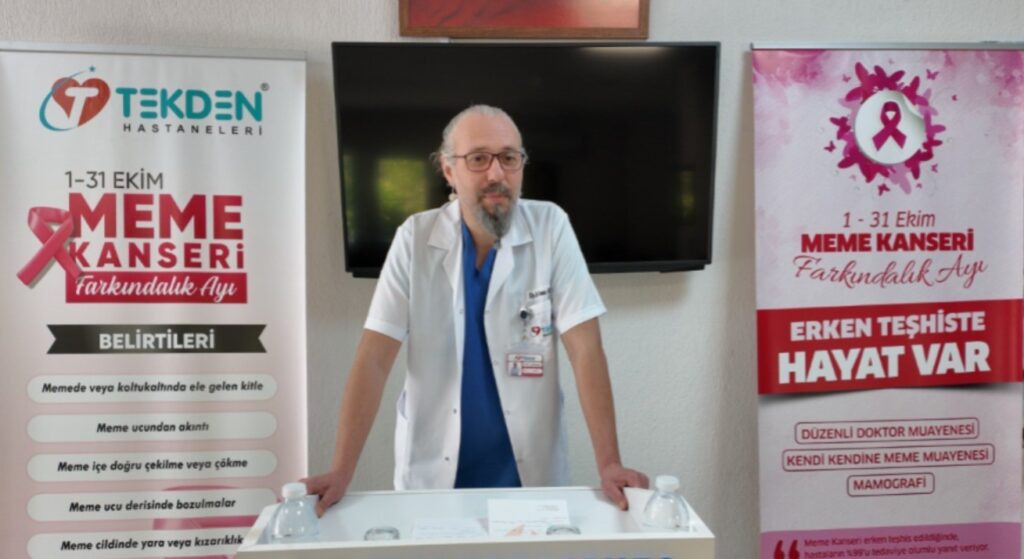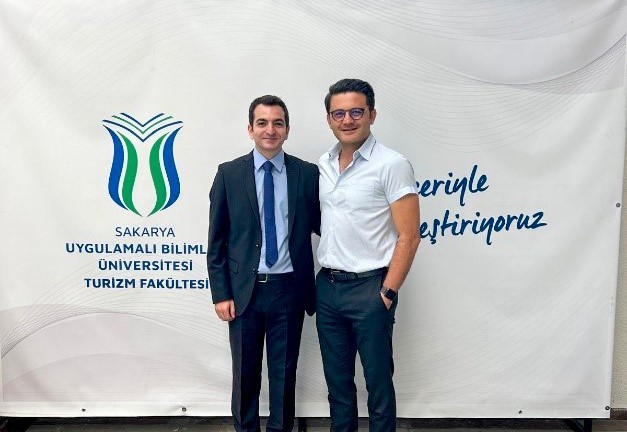The specialist explained the intensive care process in newborns.
While the “Newborn Gang” operation shakes all of Turkey, Dr. Gülşen Acar, a Neonatologist from Kanuni Sultan Süleyman Training and Research Hospital, provides information about the intensive care processes for newborns, stating that “the physical infrastructure and technological …

While the “Newborn Gang” operation shook all of Turkey, Dr. Gülşen Acar, a Neonatologist at Kanuni Sultan Süleyman Training and Research Hospital, provided information about intensive care processes for newborns. She stated, “The hospital’s physical infrastructure and technological equipment must be sufficient. The treatment plan changes according to each baby’s week, clinical diagnosis, and condition, down to the temperature and humidity of the incubator. As part of our moral responsibility and professional duty, we strive to be as meticulous as the families are, because the babies are entrusted to us.”
As the “Newborn Gang” operation shook all of Turkey, the intensive care process for newborns came to the forefront after the incident. Some of the babies, who opened their eyes to the world, were admitted to intensive care due to being born prematurely or complications arising during risky pregnancies or deliveries. Experts also provided information about this process. Uzm. Dr. Gülşen Acar from the Newborn (Neonatology) Department of the Health Sciences University Kanuni Sultan Süleyman Training and Research Hospital spoke about the functioning of intensive care for newborns. She noted that the teams continuously monitor the little ones 24/7 to help them cling to life, carrying out various treatments for high-risk babies, and that some babies are monitored in areas called “Isolation Zones.” Pediatric Infectious Diseases Specialist Dr. Burcu Bursal listed the precautions to be taken regarding infection processes.
“We monitor babies with the collaboration of many specialties and technological equipment”
Speaking about the processes for newborn babies, Uzm. Dr. Gülşen Acar said, “Newborn intensive care units are one of the most critical units in hospitals where sick babies are treated within the first 28 days after birth. We monitor and treat newborns, especially those with respiratory problems, infections, or those born very small; we do this with special devices, treatment methods, and a specialized team. Our newborn intensive care unit has a total capacity of 42 beds, with 30 incubators and a 12-bed newborn ward. We particularly monitor very high-risk babies in the 3rd and 4th level newborn intensive care sections. Of course, for the monitoring of these high-risk babies, the hospital’s physical infrastructure and technological equipment must be adequate, which is a necessity. We can implement advanced levels of newborn treatment stages, and we do this as a team. We aim to benefit many of our babies with the cooperation of our pediatric surgery, cardiology, neurosurgery, ophthalmology, pediatric radiology specialists, and many other related sub-specialties, as well as the advantages provided by technological equipment. Achieving this brings us extra joy and pride. Even during the transport of the baby from the delivery room, the appropriate temperature and humidity balance is attempted to be maintained from that moment on.”
“The baby’s week and clinical diagnosis affect the treatment plan”
Uzm. Dr. Acar stated, “Our nursing colleagues undergo very serious training before working in the newborn intensive care unit. Therefore, care is provided in a balanced manner according to the week and clinical condition of the baby. We provide all treatments tailored to the specific needs of the baby. We try to give care as needed and to the extent required. Continuous, regular, and quite orderly support can be provided. The approach to a very premature baby with very low birth weight differs significantly from that of a baby with jaundice who is more stable and admitted at the first level. From the moment of admission, we provide the families with very detailed information according to the clinical condition of the baby. The treatment plan changes according to each baby’s week, clinical diagnosis, and condition, down to the incubator’s temperature and humidity. As part of our moral and professional responsibility, we try to be as meticulous as the families because the babies are entrusted to us. We sometimes impose certain restrictions against the risk of infection, especially for babies in the 3rd and 4th levels; we keep visiting hours more limited and explain in detail to families that this is for the benefit of the baby, and information is provided to families regularly every day. The process actually starts during pregnancy; it begins with the regular follow-up of obstetrics, and it is very important for families to be aware.”
“Newborns are a very sensitive population”
Discussing conditions such as fever and feeding difficulties in babies, Pediatric Infectious Diseases Specialist Dr. Burcu Bursal emphasized the importance of timely and appropriate antibiotic use. She stated that antibiotics should not be used unnecessarily and continued: “It is crucial to use antibiotics when needed, in appropriate diagnoses, at the right dose, and for the appropriate duration. Our Ministry of Health has studies on this issue. In our hospital, we have a very good collaboration with the newborn and pediatric intensive care teams. Newborns are a very sensitive population; if we do not treat a newborn with an infection properly with appropriate antibiotics, it can lead to serious consequences. We have all the necessary technological tools and opportunities, including our culture laboratory. If a newborn is not feeding, we must be very careful; the sucking reflex is very important. It is essential to note the mother’s report of the baby being restless, having a fever, and the physical examination findings when presenting to the hospital. If there is a fever accompanying feeding difficulties or rashes in a newborn, it is imperative to consult a physician. They must bring babies they think are ill to the hospital. Before starting antibiotics, we take cultures, which are very guiding for us.”







